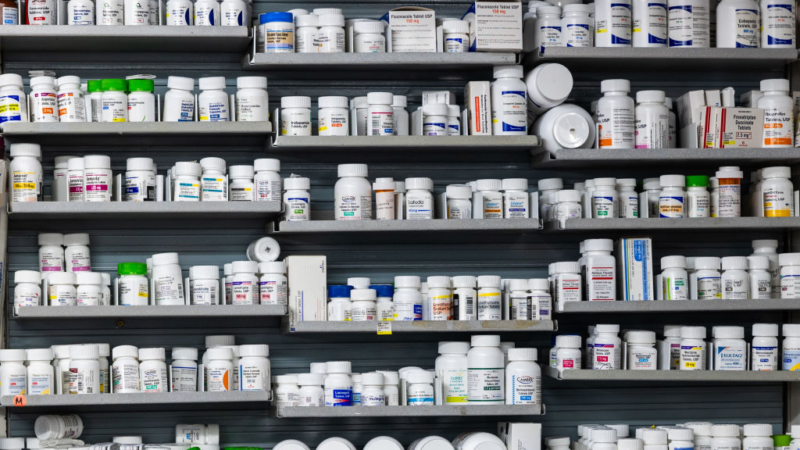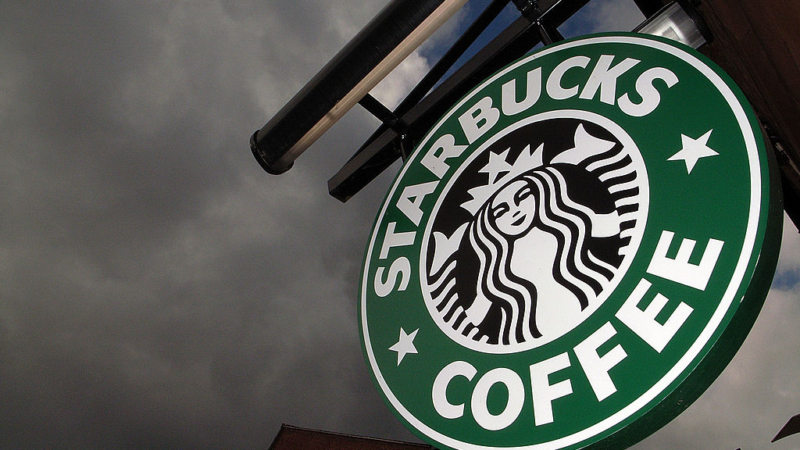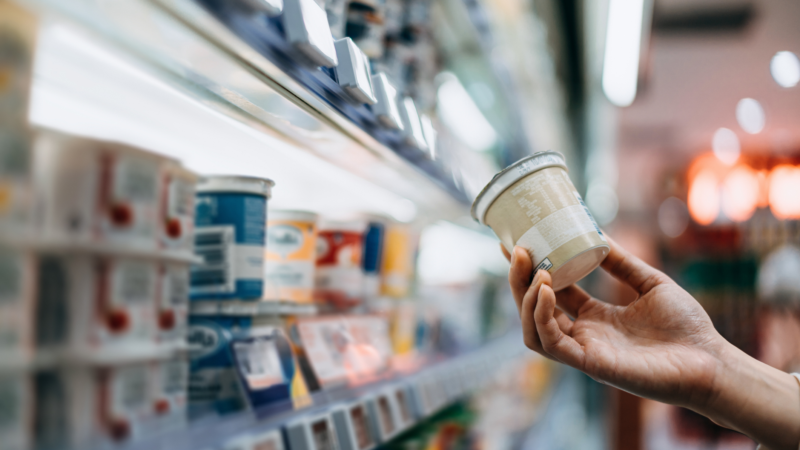Drugmakers hiked prices for hundreds of drugs in early January
Drugmakers raised the list prices on 575 name-brand drugs in just the first two days of the new year, according to drug price research firm 46brooklyn. Drugs for diabetes, HIV, cancer saw price hikes, among others.
For years a 10% annual price hike was fairly normal, but they’ve started coming down in recent years. This year’s median price hike so far is only 4%, says Antonio Ciaccia, CEO of 46brooklyn.
“While it’s early, if that number held throughout the year, that would make it the lowest median price increase in over a decade,” says Ciaccia.
January is typically a popular time to raise prices on brand name drugs, but companies can raise them throughout the year. There could even be more later this month, he says.
He provided data on the hikes to NPR, and explained that every row of the spreadsheet has its own story about how different layers of the health care system, government regulations and drug market interact.
“The list prices for drugs create great signals for what might be happening in the marketplace and what incentives might be driving certain behaviors, not just by drug companies, but every layer of the drug supply chain,” says Ciaccia.
The list prices are the starting point, kind of like the sticker price for a new car. There are discounts and different kinds of rebates that affect what actually gets paid, similar to carmaker incentives. Here are takeaways from this year’s price changes.
Some big names went up
Type 2 diabetes drug Ozempic and COVID drug Paxlovid saw price hikes of about 3% each, according to 46brooklyn, which uses National Average Drug Acquisition Cost, or NADAC, data in its analysis.
NPR reached out to the drugs’ makers to ask them why they raised these prices. Neither detailed the specifics behind those price increases, but they spoke about increases across their products generally.
Novo Nordisk, which makes Ozempic, said it raised some drug prices because of changes in the health care system and other factors, like inflation. It notably did not raise the price of Wegovy, which has the same active ingredient as Ozempic but is approved to treat obesity.
Pfizer said modest price increases for its products help it discover and develop new medicines and address other increasing business costs.
Small price hikes still matter
While small, many of this year’s early drug price increases are still above inflation — which is 2.7%, according to the latest information from the Bureau of Labor Statistics. And that means penalties in Medicaid and other programs kick in.
But the companies are raising prices above inflation anyway.
“To me, that is an admission through action that there’s a lot of money to be made outside of those government programs, which makes paying those fees and penalties, quote, worth it,” says Ciaccia.
Meanwhile a new report from AARP shows that over a drug’s lifetime, small increases can add up. The organization found that for the top 25 drugs in Medicare Part D, the average price increase was 98% over the lifetime of the drug. That means the drug’s price nearly doubled.
Consumers could pay more … or less
If the drug you need isn’t covered by insurance, then you’ll be paying more.
If the drug is covered, you’re likely not paying the full sticker price, but you might have a copay at the pharmacy counter or coinsurance. That is often tied to the listed price of a drug, so a higher price could mean a higher copay.
But there’s another possibility that has to do with the complex health system and its incentives. Sometimes a higher price means there’s more room for the drugmaker to negotiate a big discount or rebate with health plans. And that incentive might put the drug in a better position — or tier — on a formulary, which is the menu of drugs a health plan will pay for. Drugs on the best tiers often get the lowest copays.
“So an increase in the list price may paradoxically result in better access on the formulary because there is a large rebate tied to it,” says Ameet Sarpatwari, a professor at Harvard Medical School whose research focuses on the effects of laws and regulations on pharmaceuticals and public health.
For consumers that means a drug may cost them less because of a lower copay, even though the list price went up.
Some prices went down
A few drugs got price cuts.
A notable decrease was for Januvia, a Type 2 diabetes drug. It went down by 42%, which Ciaccia and Sarpatwari both told me they found puzzling.
“That one I did not have on my bingo card,” says Ciaccia.
Januvia is one of the ten drugs whose price was negotiated in Medicare for the first time ever under the Biden Administration as a result of the Inflation Reduction Act. But its new lower Medicare price won’t kick in until January of 2026.
Merck says it didn’t cut the price because of the negotiation but wanted it to be closer to the price insurance plans pay after discounts and rebates.
As for how that new price will play out for consumers in the complex health care system, only time will tell.
SEC sues Elon Musk, says he didn’t disclose Twitter ownership on time before purchase
The U.S. Securities and Exchange Commission says Musk failed to disclose his ownership of Twitter stock in a timely manner before buying the site and underpaid by $150 million for shares he bought.
No such thing as a free toilet: Starbucks reverses open bathroom policy
The new guideline is a reversal of a 2018 open-door policy that was implemented after two Black men, who had not ordered anything, were arrested at a Philadelphia store.
The FDA calls for at-a-glance nutrition labels on the front of packaged foods
The FDA wants front-of-package nutrition labels required on packaged foods. The labels would tell consumers if the product has Low, Medium or High levels of saturated fat, sodium and added sugar.
Why some doctors have started asking patients about their spiritual lives
Indiana University's hospital system is pairing patients with local faith groups to ease feelings of loneliness and isolation. The unique new program comes as more doctors are seeing a need to care for patients' spiritual as well as physical health.
Lawsuit by college professors and students challenges Alabama’s anti-DEI law
The complaint asserts the new law violates the First Amendment by placing viewpoint-based restrictions on educators’ speech and classroom lessons.
Lil Baby and Bad Bunny have fantastic chart debuts
Two debuts claim the top two spots on Billboard's main album's chart: Lil Baby and Bad Bunny.







